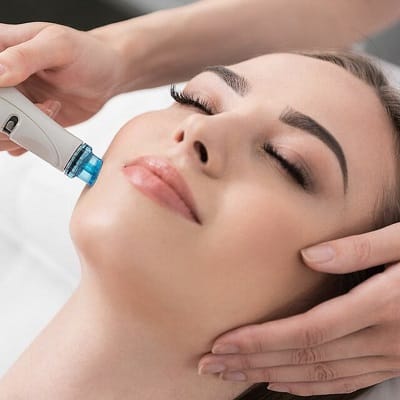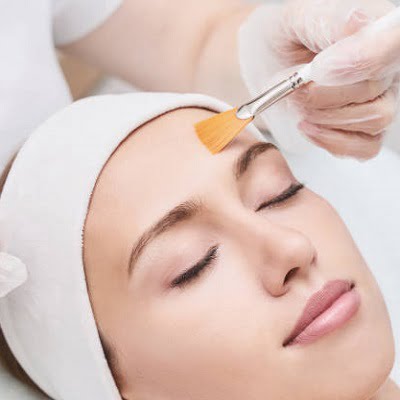
Many different face treatments are available to assist you in having healthy, smooth, and bright skin. Moreover, two well-known procedures frequently placed adjacent to one another are dermabrasion and hydrafacial therapy. Although they differ significantly from each other’s, however, they both cleanse and revitalise the skin. Hence, knowing their differences will help you choose the best procedures. So, this blog will discuss Is Hydrafacial Same as Dermabrasion.
What Action Does Hydrafacial Do?
One session of HydraFacial, a non-invasive facial treatment, cleans, exfoliates, extracts, and moisturises. It employs a unique machine to provide the face with several therapies, including
- Cleansing and exfoliating help clear your skin of dead cells and polish its surface.
- A mild chemical peel—that is, an acid solution that is not too strong—helps clean pores of dirt and oil without aggravating the skin.
- It can remove blackheads and other skin issues with the Hoover tool.
- Experts moisturise the skin by injecting hyaluronic acid, antioxidants, and peptides.
- HydraFacial is gentle and is beneficial for you without any breaks. Many consider it a fantastic “lunchtime treatment” since the patients can return to their regular lives immediately with brilliant, fresh skin.
Dermabrasion:
One more robust approach to eliminating dead skin cells is dermabrasion. It sands off the top layer of skin using a revolving instrument. Dead skin cells are eliminated by this mechanical exfoliation, so lessening of scars, fine lines, and deep wrinkles is evident. Conversely, dermal resurfacing is typically performed by a doctor and may call for a local anesthetic because it might be uncomfortable.
It removes the top layer of skin, so new skin cells will flourish and the skin will seem younger and smoother. On the other side, it can heal somewhat slowly. The skin can be red, puffy, and peel for days or perhaps weeks depending on the depth of therapy.
Is Hydrafacial the Same as Dermabrasion?
Though they make the face look and feel better, these treatments differ in many significant respects. Let’s examine Is Hydrafacial Same as Dermabrasion:
Method of Exfoliation
Without aggravating the skin’s redness or irritation, HydraFacial cleans and exfoliates it using light chemical peels, mild suction, and moisture. The procedure feels more like a soothing facial massage and doesn’t hurt.
It takes off the top layer of skin during dermabrasion. This could be uncomfortable and increase the aggressiveness of the treatment.
Targeted Skin Issues
A HydraFacial is best for treating mild to severe skin issues, including fine lines, clogged pores, uneven texture, and dryness. It is a fantastic approach to maintaining a glowing and healthy face.
Dermabrasion better fixes deeper skin issues, including acne scars, deep wrinkles, and uneven skin tone. Though it’s normally advised for particularly severe skin conditions, it can have more general effects.
Recovery Time
Following HydraFacial there is no stop. Your skin will feel hydrated and rejuvenated following the treatment, hence you may start your everyday life straight away. Those who want results immediately and do not want to recover would find this to be a terrific option.
Dermabrasion requires extensive healing time. Patients may develop heat, edema, and peeling for a few days or weeks depending on the depth of therapy. Stay out of the sun during this period; the skin may not heal completely right away.
Intensity
Since HydraFacial does not aggravate sensitive skin, it’s a mild treatment that suits all kinds of skin. The procedure is supposed to be low-risk and produces little to no pain.
A lot stronger dermabrasion can cause pain during and after the treatment. It takes cautious attention and may not be a good concept for sensitive skin users.
Choose the Best Treatment:
Whether you should receive a HydraFacial or dermabrasion will depend on your skin type, concerns, and goals.
If you want a quick, mild, moisturising treatment without any downtime, HydraFacial is a fantastic option. For everyday maintenance that maintains your skin looking healthy and radiant, it’s excellent.
If you are ready to go through a more extended recovery period and have deeper skin issues, including acne scars, wrinkles, or uneven skin tone, dermabrasion may produce the better results you desire.
Final Thoughts:
Although both treatments enhance the appearance and structure of your skin, they accomplish it in rather different ways and for rather distinct skin conditions. Better for treating more severe skin issues, dermabrasion is a more forceful procedure. Conversely, HydraFacial is a mild, moisturizing treatment free of downtime needed.
If you want to consider either treatment, you should consult a qualified skin care professional, such as Dr Maryam at SKN Cosmetics Islamabad, to determine which would be most appropriate.



